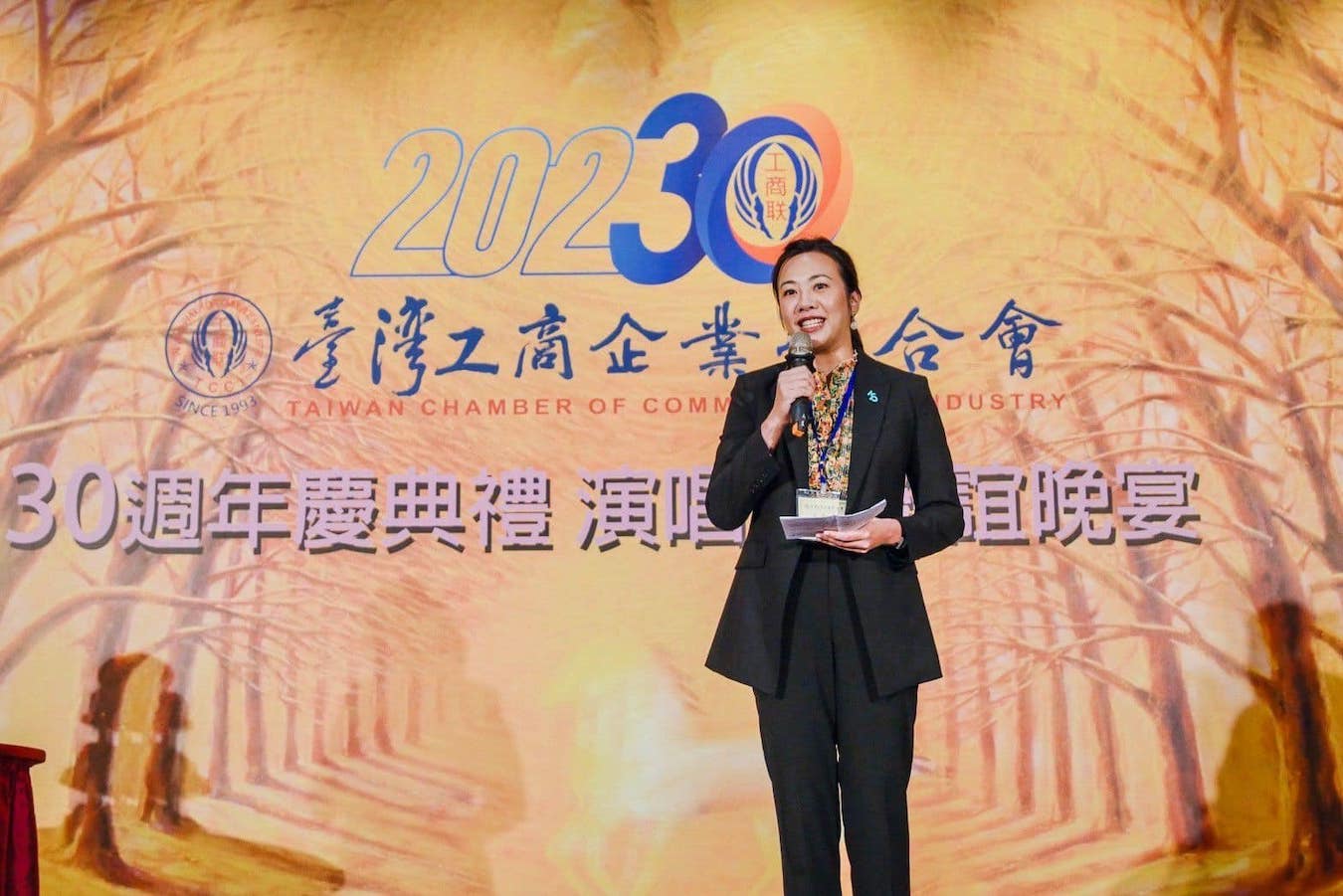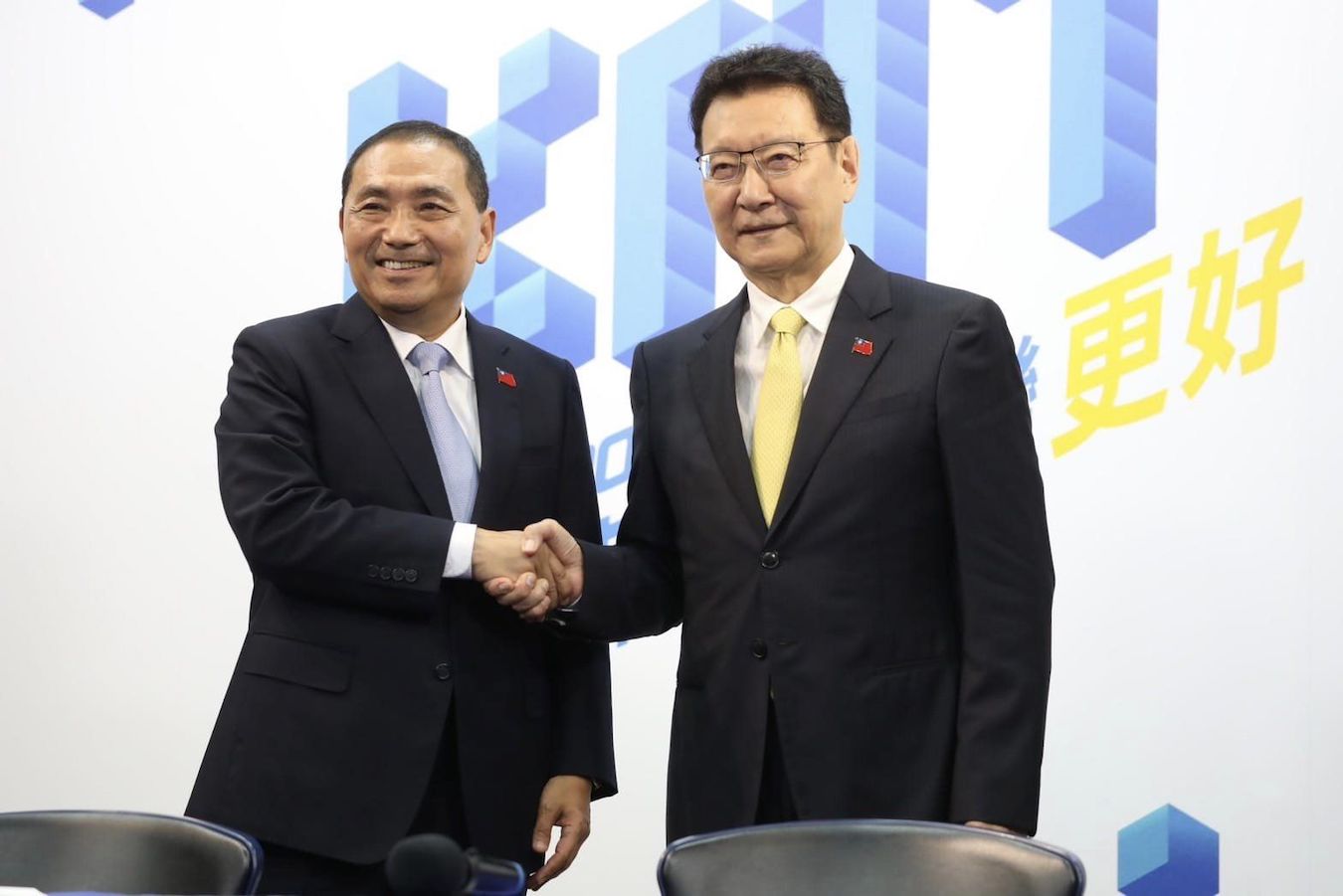by Brian Hioe
語言:
English
Photo Credit: Hsiao Bikhim/Facebook
CONTROVERSY HAS broken out about the DPP and TPP vice presidential candidates regarding allegations about whether they hold US citizenship. In particular, the DPP is fielding former representative to the US, Hsiao Bikhim, as its vice presidential candidate. On the other hand, the TPP is fielding legislator Cynthia Wu as its vice presidential candidate. The KMT is fielding pan-Blue firebrand and media personality Jaw Shaw-kong as their vice presidential candidate, though he has not become embroiled in any citizenship controversy.
 TPP vice presidential candidate Cynthia Wu. Photo credit: Cynthia Wu/Facebook
TPP vice presidential candidate Cynthia Wu. Photo credit: Cynthia Wu/Facebook
Hsiao resigned her post to serve as the DPP’s vice presidential candidate. Before it became clear that she would become Lai’s vice presidential candidate, speculation primarily focused on her and former Minister of Culture Cheng Li-chun. Given her successes in shoring up diplomatic relations with the US, as vice president, Hsiao would be able to reassure those who fear that Lai may harbor pro-independence views and that after becoming president, he would seek to enact this ideological vision.
After all, when serving as mayor of Tainan, Lai claimed to be a “pragmatic worker for Taiwanese independence.” Nevertheless, since then, Lai has sought to modulate his views, now emphasizing that Taiwan does not need to declare independence because it is already a sovereign and independent country by the name of the ROC. As such, Lai has sought to reiterate that he will continue the stances of the Tsai administration. On other occasions, Lai claimed that it was possible to feel an affinity for China while loving Taiwan.
Both Cheng and Hsiao would have allowed Lai to shore up his credentials among progressives, seeing as he has traditionally been seen as more closely aligned with the conservative wing of the DPP. Yet Hsiao is more closely associated with current president Tsai Ing-wen, while Cheng is more aligned with Lai’s faction of the DPP. Lai previously made some moves that seemed intended at swapping out Tsai’s people for his own, though this does not seem to have been successful.
Since Hsiao was announced as his vice presidential choice, the Lai ticket saw an uptick in approval ratings. This often happens when candidates announce their running mates.
 KMT presidential candidate Hou You-yi (left) and vice presidential candidate Jaw Shaw-kong (right). Photo credit: Jaw Shaw-kong/Facebook
KMT presidential candidate Hou You-yi (left) and vice presidential candidate Jaw Shaw-kong (right). Photo credit: Jaw Shaw-kong/Facebook
The KMT delayed announcing its running mate for Hou You-yi until the final collapse of talks with the TPP about a joint ticket. Nevertheless, after it was announced that Jaw Shaw-kong would be Hou’s running mate, the KMT ticket also saw a glow-up effect from the announcement. This may not be surprising, given Jaw’s long decades of experience in Taiwanese politics as a politician and as a prominent pan-Blue media personality, even if his deep Blue views may alienate significant chunks of the public.
By contrast, the TPP vice presidential candidate, Cynthia Wu, has not received such attention. Wu is a relative newcomer to politics, replacing Tsai Pi-ru as TPP legislator after she resigned in the wake of plagiarism allegations, but is best known as a member of the family that owns the Shin Kong Group, one of Taiwan’s largest conglomerates. In the wake of criticisms for appointing a member of one of Taiwan’s wealthiest families as his running mate, despite otherwise framing himself as an anti-establishment candidate, Ko raised eyebrows by claiming that the Shin Kong Group was not a conglomerate to defend himself.
However, since the announcement by the three major parties in the election, both Hsiao and Wu have come under fire with the allegation that both did not give up US citizenship. This has often been a recurring concern in Taiwanese politics, given the large number of individuals who run for office who have other citizenships. Political candidates are required to give up their citizenship if they hold office, but there are frequently allegations that individuals did not, in fact, give up their other citizenships or hold Green Cards. Among those to face such allegations include former president Ma Ying-jeou.
Previously, when Terry Gou was still in the race, questions were raised about whether his vice presidential pick, Tammy Lai, would be able to give up her US citizenship in time to run in the election. Although the process for giving up one’s US citizenship can take up to six months, Lai was nonetheless able to give up her citizenship in time.
 DPP presidential candidate Hsiao Bikhim. Photo credit: Hsiao Bikhim/Facebook
DPP presidential candidate Hsiao Bikhim. Photo credit: Hsiao Bikhim/Facebook
The pan-Blue camp has, in particular, focused fire on Hsiao’s heritage, claiming that Hsiao was not born with ROC nationality and later acquired it. This seems to be an attack on Hsiao’s mixed-race background, though one notes that Tammy Lai also had an American parent. In response, the DPP has asserted that Hsiao never gave up her ROC citizenship at any point. Attacks on Hsiao from the pan-Blue camp seem to primarily be in response to questions raised about Wu.
Past years in Taiwanese elections have seen questions raised about the qualifications of presidential candidates. This includes claims that President Tsai Ing-wen did not have a Ph. D–something that was termed to be Taiwan’s equivalent of birtherism at the time. Yet it would not be surprising if there are, in fact, conspiratorial allegations about where candidates are born in the present election cycle.

